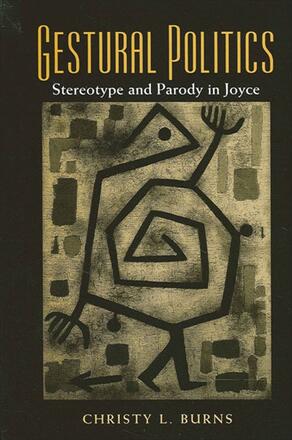
Gestural Politics
Stereotype and Parody in Joyce
Alternative formats available from:
Explores James Joyce's use of parody and humor in his representation of women, gays, and Irish nationalism, and discusses how his complex attitude toward parody and stereotyping is related to his aesthetic vision.
Description
Gestural Politics explores James Joyce's use of parody and humor in his representation of women, gays, and Irish nationalism. Author Christy L. Burns also discusses how Joyce's complex attitude toward parody and stereotyping is related to his aesthetic vision. She offers a comprehensive overview of all of Joyce's writings with a special emphasis on Portrait of the Artist as a Young Man, Ulysses, and Finnegans Wake.
Christy L. Burns is Associate Professor of English at the College of William and Mary.
Reviews
"Burns skillfully weaves together an ambitious volume that, instead of following a simple chronological path through Joyce's work, deals in turn with a number of important topics: gesture, femininity, homosexuality, and nationalism, ending with an essay on language and typography in Finnegans Wake. All of these topics have been much discussed in Joyce studies, and it is a tribute to Burns's originality that she has new light to cast on all of them. Her attention to the humor of Joyce's work is also to be applauded. " — Derek Attridge, editor of The Cambridge Companion to James Joyce
"An extremely useful and vibrant book, Burns forges a new path that refuses heavy politicization or sexualization, yet is alert to all the questions posed by the texts. " — Jean-Michel Rabaté, author of Joyce Upon the Void: The Genesis of Doubt